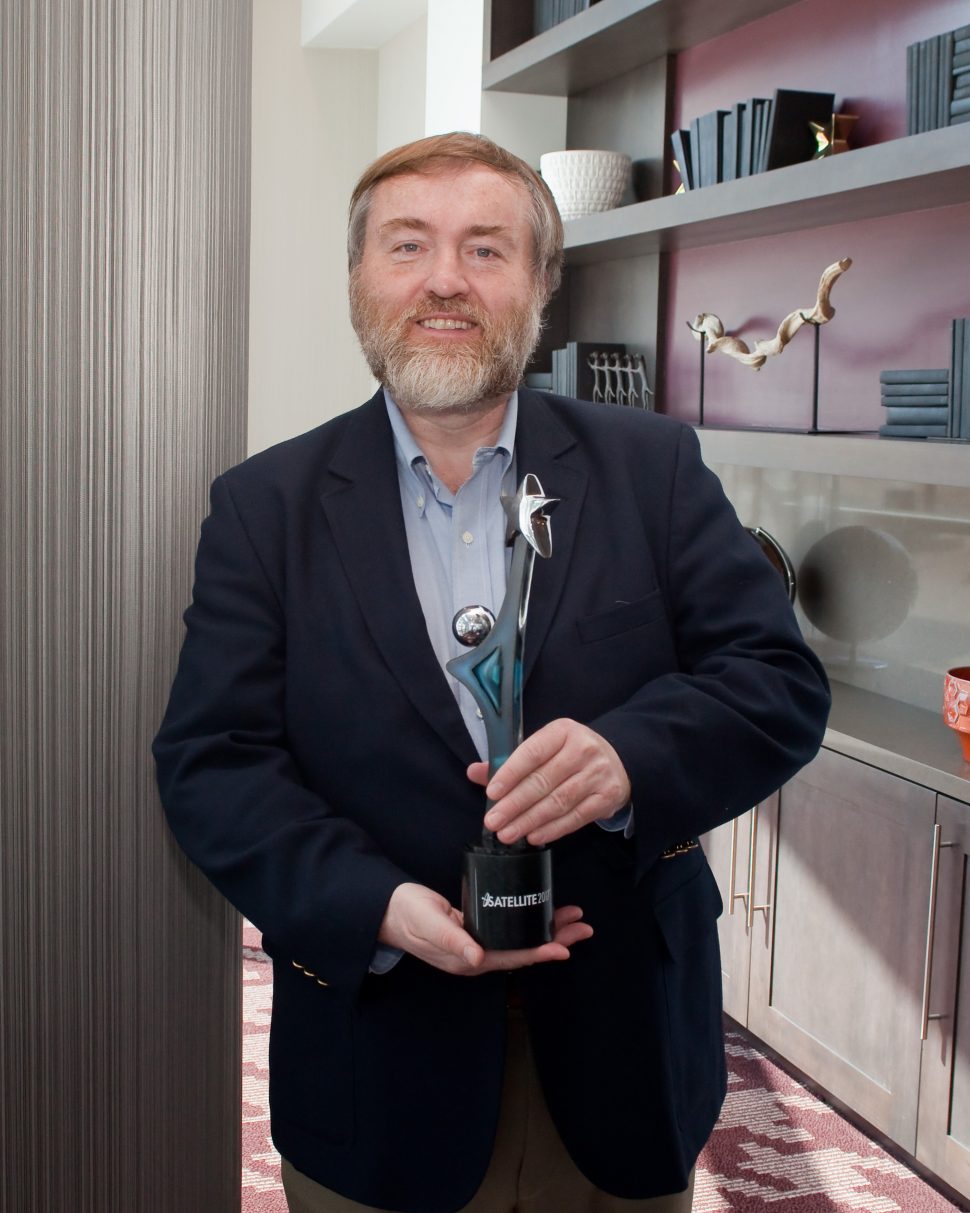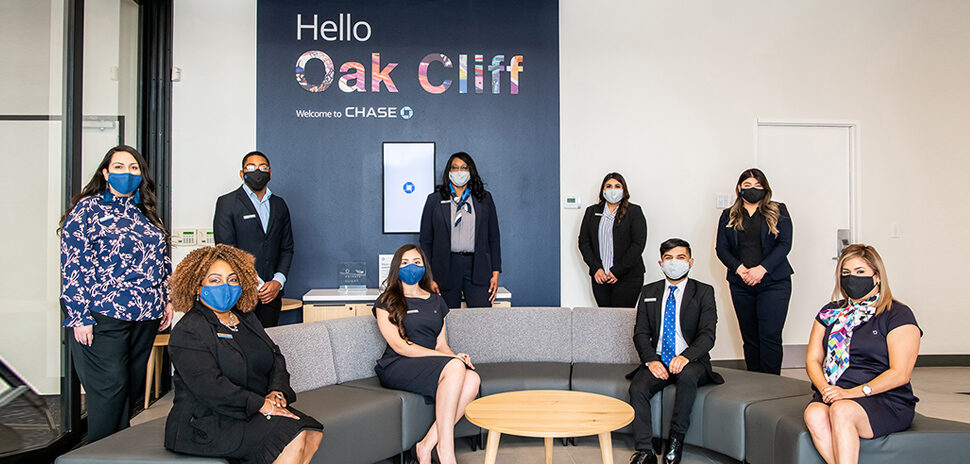Astrapi, a Dallas technology startup and pioneer in spiral-based signal modulation, has attracted the attention of investors and potential clients after winning the grand prize at the inaugural Satellite 2017 Startup Space pitch competition.

Astrapi founder and CEO, Dr. Jerrold Prothero, received a Satellite 2017 Startup Space award on March 10. [Photo: Courtesy of Astrapi]
About 100 companies entered the competition at Satellite, a premier event in the satellite communications industry. Astrapi was one of 20 entrants who were invited to pitch in a Shark Tank-style competition where entrepreneurs present their business and technology ideas to a panel of highly accomplished space professionals, investors, thought leaders, and fellow entrepreneurs.
Satellite communications represent a major market opportunity for Astrapi, which views the award as a significant validation of its technology. Astrapi presented its innovative approach to providing satellite communications service providers with dramatic spectral efficiency gains via spiral modulation to meet customers’ increasing demand for more data throughput.
The company, founded in 2009, has more than 40 patents issued, pending, or filed provisionally.
Spectrum utilized today by telecommunications firms uses sine waves, which are approaching their theoretical limit, and require telecomm companies to acquire spectrum rights from other companies via merger-and-acquisition activity or at auction due to increasing demand.
Astrapi believes it has solved the limited spectrum problem with an efficient technical solution that can be deployed first with software upgrades. If successful, it foresees its technology being added to the “chips” or brains of satellite communication modems that determine how signals are sent and received.
Astrapi’s technology was developed by Dr. Jerrold Prothero, the company’s CEO and founder. Prothero used Euler’s formula, the foundational mathematics for telecommunications, by extending the formula from circles to spirals. This opens a path to dramatically higher spectral efficiency across a wide range of radio communications.
The company, founded in 2009, has more than 40 patents issued, pending, or filed provisionally and has raised $2.3 million from angel investors. Its business model is to license its technology to others.
David Shaw, co-founder and chief commercialization officer of Astrapi, said the company’s presence at the Satellite event has boosted its credibility and resulted in increased investor interest.

David Shaw
“People realize that we are working on something important,” he said. “It’s raised our profile on things we are trying to do with the Department of Defense and other target markets.”
GAINING ATTENTION, GETTING INVITES
Since the win, the company has been invited to present at the June 27-29 NewSpace 2017 conference in San Francisco, hosted by the Space Frontier Foundation and to present a virtual pitch to Astia in May before a global online audience. Astia identifies and promotes best-in-class women entrepreneurs. Astrapi’s leadership includes Rita Martinez Solon, director of strategic support and investor relations.
The company also was invited to present June 9 in Denver before Starburst, which links startups to angel investors and venture capitalists dedicated to the aerospace, defense, and security industries and assists with access to aerospace stakeholders.
The company also recently was selected as a Silicon 60 Emerging Company to Watch by the EE Times. Additionally, it just submitted its final National Science Foundation Phase I final technical report and Phase II proposal at the end of February.
In March, the company hosted a Site Experience Education event for 20 patent officers from the U.S. Patent and Trademark Office at its Dallas office. SEE events are designed to contribute to improving the quality of patent examination by keeping patent examiners updated on the latest technologies and innovations in their field of examination.
WHY ASTRAPI’S TECHNOLOGY MATTERS
To be sure, Astrapi’s technology is complicated, and Shaw said he expects and invites skeptics.
“There are a very limited number of people who will get this,” he told Dallas Innovates. “If they are not incredibly skeptical, then we are talking to the wrong people. We are challenging each other to move [the technology] forward,” he said.
“We are challenging each other to move [the technology] forward.”
David Shaw
“We’ve got people allocating resources and engineers to evaluate what we are doing. They don’t want to be on the wrong side of this, if we are right, because the spectrum crisis is acute and impacting them now. Existing solutions to meet demand are very, very expensive.”
The limited supply of spectrum for wireless communications has been an issue for wireless providers for years and one that has become more critical as more and more customers use mobile broadband devices to communicate.
BIDDING WARS FOR SPECTRUM
It’s notable that Dallas-based AT&T Inc. and Verizon were in a massive bidding war to acquire StraightPath, a holder of millimeter wave spectrum rights, whose stock skyrocketed to $214 a share on May 8. Verizon won the war with a $3.1 billion bid, roughly a 160 percent premium over StraightPath’s closing price on April 7 of $36.48.
In other evidence of spectrum demand, the Federal Communication Commission’s 600 MHz auction closed at the end of March with total proceeds more than $19 billion. T-Mobile, Comscast, Dish, and AT&T were major participants, and they weren’t buying the spectrum, only the rights to the spectrum.
Updated May 12, 2017, 9:53 a.m.






























